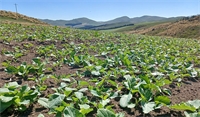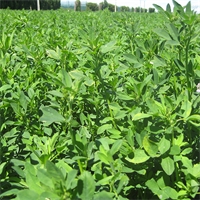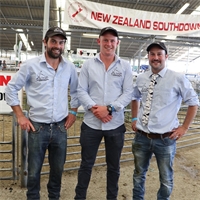21Aug
Spring Agronomy Update
Words by Craig Rodgers, Group Manager On Farm Sales.
Another kind winter has had conditions similar to last year, but September and October weather can still be variable. The benefit of early sowing can sometimes be offset by minimal soil temperatures, inconsistent growth patterns and sometimes heavy rains. Cereal plantings have continued through the winter and preparation for early pasture renewal is underway. There have been minimal forage crops planted at time of writing and this is a reflection on the previous year where there was little benefit in planting early due to the later spring.
The variable soil temperatures throughout spring can affect the establishment of pasture and crops and can result in multiple weed strikes. Moisture reserves may be tested, and we may see irrigators kicked into gear earlier this year, unless we get some consistent rainfall through the next couple of months.
Cereals
Autumn sown cereals have endured a dryer than usual winter, although continue to tiller well. Some spring cereals have been sown earlier this year due to the favourable winter soil conditions. Cereal sowings are similar to last season for autumn and winter, but spring sowings may vary dependent on what other options become available in the spring. Most varieties remain available with demand being driven by the recently released FAR cereal report that has identified some newer varieties that are performing well in local trials.
Pasture management
Initial indications are that pastures have shown good growth over the winter period with less frosts and higher daytime temperatures. Protection of good pastures will be important over the next couple of months especially when feed is required later in the spring. Most damage happens in this period as stock return to pastures and variable weather has wet and muddy underfoot conditions. Keeping the specific characteristics of your pastures in mind, this period will help you identify paddocks that are underperforming and need to be considered into your pasture renewal programme. Once we have warmer spring conditions, keeping pasture cover within the optimal range will help to achieve high growth rates, high utilisation, and high pasture quality.
Pasture renewal
There continues to be good discussion around the DairyNZ Forage Value Index (FVI) when selecting varieties. With the benefit of seasonal trends for each cultivar it can help identify what will suit your farm. Not all varieties are the same, therefore it is important to have a good balance of pasture species to suit the climate, rainfall and irrigation you have on your farm.
Competition
While the usual weed spectrum will be there this spring, it is important to remember any sort of competition in your crop or pasture affects the establishment and possible yield later. Put applications of chemicals on at the earliest possible dates and monitor closely for emerging weeds and disease. Work closely with both the person monitoring your crops and the person who is applying chemical, and ensure recommendations are completed as early as possible.
Seed bed preparation
While current conditions have enabled early preparation of paddocks this spring, it is important you put the time into preparing a good seedbed, which is vitally important for establishment of pastures and crops. Seedbed consolidation helps conserve moisture and allows a seed drill to achieve the correct sowing depth.
Fodder beet
The slow and wet spring last year had a large effect on fodder beet crops. While the summer and autumn were very kind, it was not enough for crops to recover from the slow start, with yields measuring well below the previous year. This year we will see a reduction in available varieties on the market which will make the choice easier for farmers. It is important you are sowing a variety that will suit your system and requirements in the winter. Yield can be determined by the growing season and as has happened in the past, a cooler than normal spring meant it is harder to get crops established and keep the weed competition at bay.
Related

Corteva™ Agriscience has farmers covered with a suite of post emergence forage brassica herbicides ...
Read More

Farmers looking to prolong the longevity and health of their lucerne stands have a new weed control ...
Read More

At 54 years old, Ruralco On-Farm Sales Manager, Lester Chambers is pretty open about his experience ...
Read More

Farmers have been hit with all sorts of challenges of late, but a new report shows that hasn’t stop...
Read More

For brothers James and Henry Pearse, Canterbury Cup and Show week is most definitely Pig Week. As th...
Read More

Venison tortillas are a delicious twist on traditional tacos, featuring tender, seasoned venison tha...
Read More